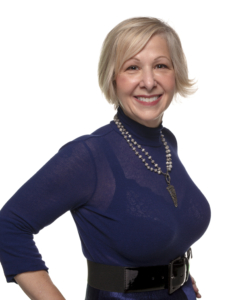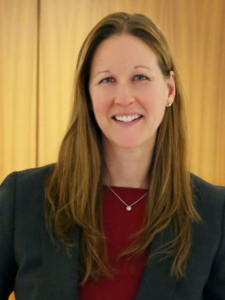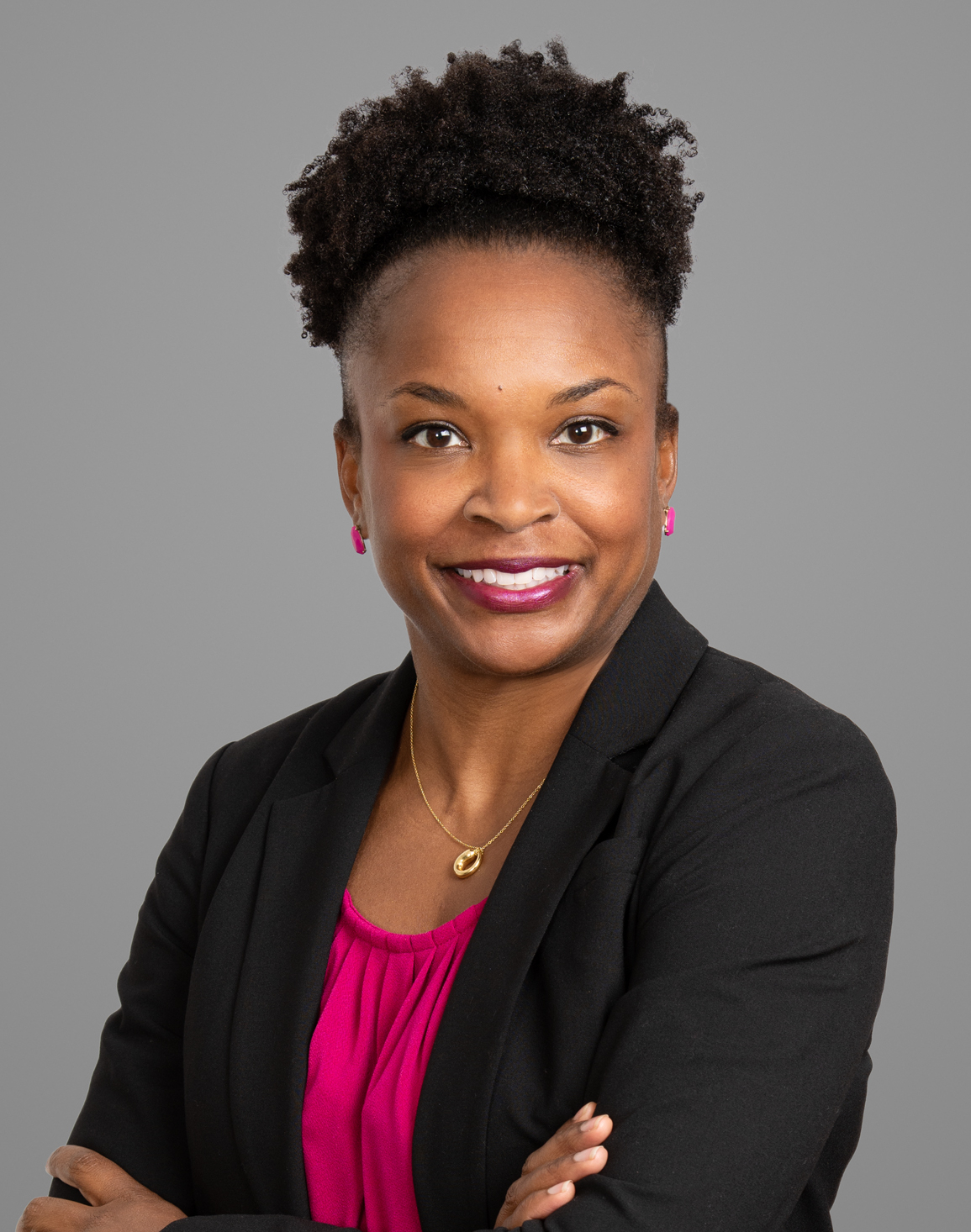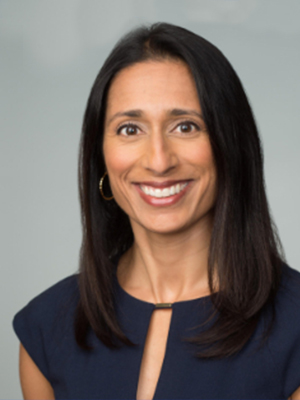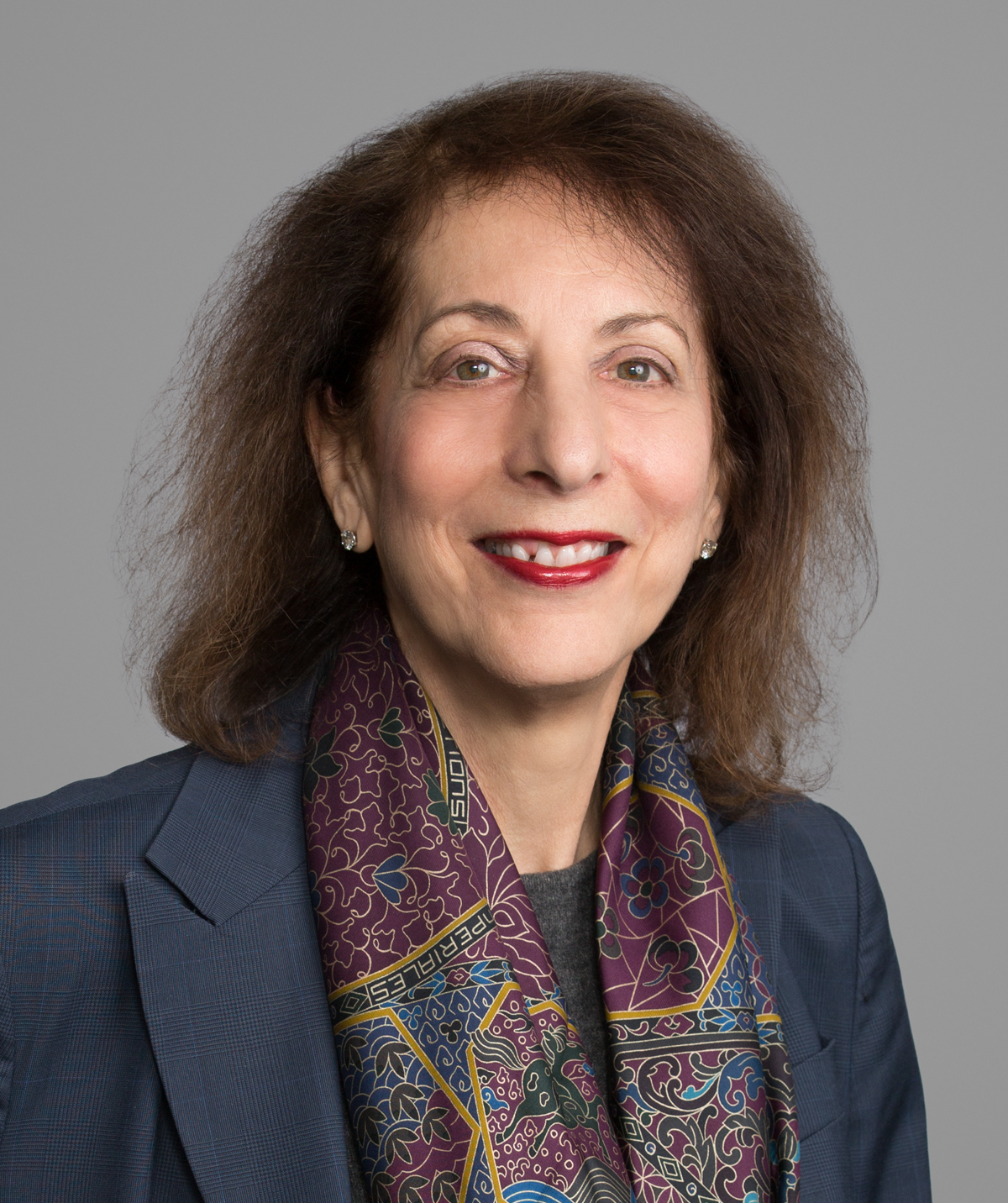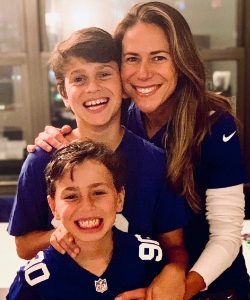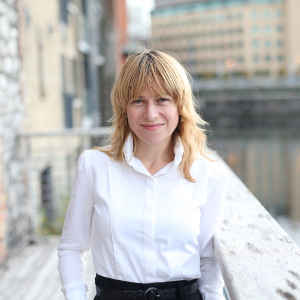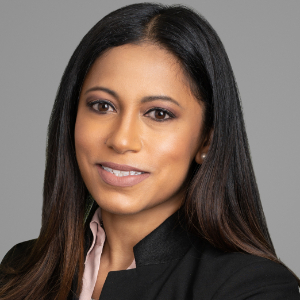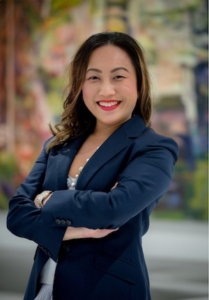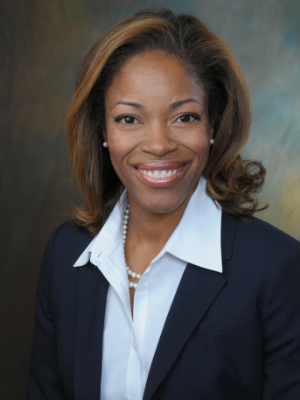 “People often say ‘if you can see it, you can be it.’ Well if you don’t see it, does that mean you can’t be it?” challenges Jamila Houser.
“People often say ‘if you can see it, you can be it.’ Well if you don’t see it, does that mean you can’t be it?” challenges Jamila Houser.
Houser speaks honestly on qualifying yourself, showing up as you and the challenges of leveling up while finding your balance.
Getting Into The Door
With strong natural abilities in math and science, Houser grew up thinking her job options were becoming a doctor or an engineer.
But while picking up her second undergrad degree at Georgia Tech (in engineering), she realized that designing laptop fans—her final senior test —was not the gateway to her ideal field, as a naturally outgoing people person.
After working in consulting at Accenture, she moved towards a real estate concentration in her MBA at Georgia State, which eventually launched her into 17 years of moving up through the ranks with PGIM Real Estate so far—where she loves the people, culture, challenges and opportunities.
But getting that initial foot in the door was no small feat. Her resume lacked real estate experience and 75% of the job post read like a foreign language. So Houser chose to emphasize from her daily life how she was a bright individual with genuine passion for the space, who could learn and had the energy to come in, figure things out and get stuff done.
“What skills do you think you bring to the space and what is it that interests you most about this opportunity?” Houser advises to ask, emphasizing that as women we too often mistake that we have to tick every box.
“Forget the fact that you have no experience,” she says. “How can you communicate your interest in such a way that you convince them that you are worth the investment?”
She recommends to be aware of the energy you are bringing foremost, come with clarity on what skills you offer and clearly exemplify those skills and how they will add value.
She also attributes her success to managers who had the courage to do something different and invest in knowing and growing her.
“It’s so important that when people are choosing an organization to work with, they are interviewing that manager just as much as they are being interviewed,” notes Houser. “You want to go somewhere where there are people who see value in you and are going to do their part to help ensure your success.”
If You Can’t See It, Can You Still Be It?
Houser admits feeling like an outsider when she initially entered into finance those couple decades ago. The industry appeared to be a conservative, formal and stifled male world where she didn’t belong as a warm and friendly people person.
While there are far more women and women events since she entered the industry, Houser notes that it still takes energy to network in a conference room where she is one of few people of color, let alone senior women of color.
“I think for me personally I have had to get comfortable with being uncomfortable,” she says. Houser has learned to go into new roles as who she is, not measuring her compatibility for the role by the gender, skin color, personality or approach of her predecessor.
“I may not see someone who looks like me, talks like me, sounds like me, but I still see myself in people who are in leadership,” she notes. “You get to realize you’re not that different.”
“I’ve never met a stranger. I just love people,” says Houser. “And I can empathize and understand that the people I’m dealing with are in a large part influenced by the lenses they’ve developed over time. So I can build relationships in a way that allows us to get to know each other.”
Recently, in a Zoom presentation to several heads of business, a simple smile from one gentleman amidst a screen of faces reminded her: “You’re just talking to other regular human beings. You’re here, you have something to say and they’re here to listen to you.”
Leveling Up Your Skills and Brand
“I’ve built my brand on hard work,” says Houser, coming from a line of single mothers. Her own mother completed her Ph.D. across 20 years while also working three jobs.
“Hard work, determination and persistence caused me to rise in the organization very quickly up to a certain point. The earlier promotions happened automatically,” Houser observes. “But there comes a point where those qualities alone are not enough, and moving up through senior management levels requires mastering new skills.”
Houser admits she works to rebuild proficiency and confidence each time she levels up.
“I have to be very intentional about negative speak—especially when I’m going into new positions or new opportunities,” she says of the critical inner voices familiar to many of us. “How quickly can I cut that off?”
Houser is grateful for mentors and sponsors who have witnessed and magnified her strengths as well as been able to point out her subtler blindspots or gaps… and dissolve her false concerns.
With her recent promotion, she’s been facing the common leadership growth pains of moving from the “hardworking” brand she’s confidently built her career on to redefining her value by leading and supporting others to be effective and productive.
“I hold myself to a very high standard, probably unreasonably high,” says Houser, “so when you’re shifting to no longer being the doer but now the manager, you have to tone it down. Moving from colleague, or peer, to manager is a difficult transition that I’m still mastering.”
Rather than assume how her team wants her to support them, her approach has been to get very clear on what support her team needs from her while communicating what she needs and expects from her team.
At first it was difficult not to jump in and put her hand in everything out of habit, but the sheer volume of work has shifted her towards more delegation and trust, so she can focus on where she needs to go now too.
Finding Your Authentic Expression
Houser is an outcomes-driven person who has learned across time to bridge the conversation differently with those who are more process, detail or strategy-oriented, with their own inclinations and gifts.
One of her personal journeys has been finding her authentic expression in a professional setting, and letting that move with her.
“The switch flipped for me with authenticity that I can still be myself but there’s a way to be myself at work,” says Houser, noting her husband pointed out to her that her professional self is as much a part of her wholeness as her Sunday dinner self.
“I have had to wrestle with the idea of authenticity,” says Houser, “and I think I’ve become much more comfortable that I can be who I am and express how I express. I have found the right balance where I bring my authentic self but into the work setting.”
Bringing Others Up With You
“Once it clicked that not only do I have a seat at the table, but people also look up to me,” observes Houser, “I began to take the responsibility to lift others to success very seriously.”
While she used to be focused solely on her own contribution, Houser now spends most of her time looking around to see who she can advocate for, make visible and elevate, building the close mentor relationships she herself has valued as a mentee.
“I especially champion the ones who no one is thinking about, nobody is talking about, they’re not raising their hand,” she says. “They’re fine sitting over there and doing their job every day to a very high degree.”
“That gives me so much joy,” says Houser, “using the skills, the talent, the relationships, the knowledge I’ve gained to help someone else be successful.”
Practicing Self-Care to Show Up For Others
As many women share, being passionate about her job in the remote, 24/7 availability work environment and being a mother of ten and eight year old sons who are distant learning beside her at home has made creating balance more challenging.
“I’ve found that if I don’t take care of myself, I can’t show up and be there for my staff, for my kids or my husband,” observes Houser. “So though I may want to put my hand in all these efforts and do all of these things, I need to put my own oxygen mask on first.”
She has found declaring self-care recharge days and moments for herself to be a necessary grace. She plans to cultivate more intentional quality time and movie nights with her boys.
Houser finds meditative rhythm by running in a women’s group each morning come rain or snow, and gardening continues to be a lifelong love of hers, with a future interest in helping to create urban farms.
By Aimee Hansen

